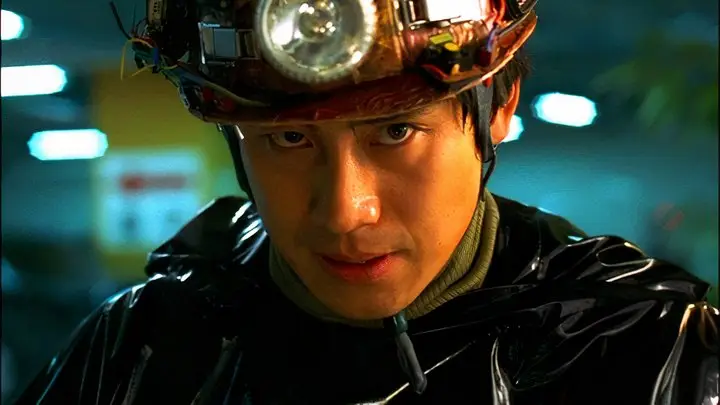Copyright Polygon

Greek surrealist director Yorgos Lanthimos makes extremely strange movies. His original stories are weird, like The Lobster, in which singletons need to find love, or risk being turned into animals. When he adapts someone else’s work, he tends to draw from source material that’s pretty odd, too — odder, perhaps, than his adaptation of it. That was the case with 2023’s Poor Things, an adaptation of Alasdair Gray’s gloriously perverse novel, a feminist, sex-positive take on Frankenstein. Lanthimos’ version is good, but to some extent, his particular flavor of weirdness and Gray’s cancel each other out. Lanthimos’ next pick for adaptation also came from far out in left field. The source text for Bugonia, his latest collaboration with star Emma Stone, is 2004’s Save the Green Planet!, a confounding Korean genre stew of science fiction, black comedy, horror, satire, dark psychodrama, and police procedural. It’s a strange film not so much for what it’s about — though that is far from normal — but for the chaotic extremity of its tone and storytelling style. It’s a wild, wild ride. There must have been something in the air in South Korea in the early 2000s. Save the Green Planet!, written and directed by Jang Joon-hwan, was part of an explosion of stylistically bold, boundary-pushing movies from a new generation of filmmakers like Bong Joon Ho and Park Chan-wook. It was released the same year as Bong’s Memories of Murder and Park’s Oldboy. Save the Green Planet! isn’t on the same level as those two crime masterpieces, but it’s got a lot in common with them: extreme violence, dark comedy, bitter social commentary, and genre subversion. Save the Green Planet! is about a disturbed young man who abducts a chemical-company executive, believing he’s an alien from the planet Andromeda, with plans to invade Earth. Initially, that idea is played as broad comedy, and the young man, Lee Byeong-gu (Shin Ha-kyun from Park’s Joint Security Area and Sympathy for Mr. Vengeance), seems like a lovably deluded fool. He and his childlike circus-performer girlfriend Su-ni (Hwang Jung-min) wear black PVC ponchos and absurd helmets encrusted with anti-mind-control devices, and wield menthol rub as a weapon. But they do succeed in kidnapping drunken CEO Kang Man-shik (Baek Yun-shik) and taking him to Byeong-gu’s remote property, a ramshackle house/lab he’s built on an old mine in the mountains, where he keeps bees. From this point, the film veers quickly into something more grotesque and unsettling. Byeong-gu straps Kang to a budget-Cronenberg torture chair and physically abuses him while declaiming absurd conspiracy theories, eventually driving the gentle Su-ni away. But Kang is no victim; powered only by the conviction of his own superiority, he is willing and able to subject himself to horrifying ordeals just to try to escape and lord it over the clearly unwell younger man. Meanwhile, a deeply unimpressive police hunt for the kidnapper begins. The cops’ witlessness and incompetence is reminiscent of Memories of Murder, although it’s not so clearly intentional in a movie with plotting that seems slapdash and improvised. Save the Green Planet! just keeps barrelling onward, propelled by its own crazed energy, trampling genre norms underfoot, long after you might expect it to either settle down or run out of steam. Sometimes it seems to be a drama about mental health and overmedication; sometimes it’s a fantasy allegory about the callousness of capitalism; sometimes it’s a grimy basement horror or a sloppy cop movie. Director Jang brings the same level of hysterical commitment to every bit, and Shin Ha-kyun is excellent, although the character of Byeong-gu keeps morphing between savant prophet, lovable weirdo, and terrifying psycho as required by the movie’s constant shifts in tone, perspective, and plot. I think that’s a feature, not a bug, but it can be pretty disorienting. Jang probably consciously intended to disorient his audience, mind. Like so many Korean films of its time, Save the Green Planet! is powered by a gleeful, maximalist disrespect for stylistic boundaries on one side, and a quite sincere anger about man’s inhumanity to man on the other. It’s a roaring expression of a society finding its global voice amid new economic and cultural freedoms. It will be fascinating to see how Lanthimos views the same story from contemporary America — arguably, the other end of the telescope.



